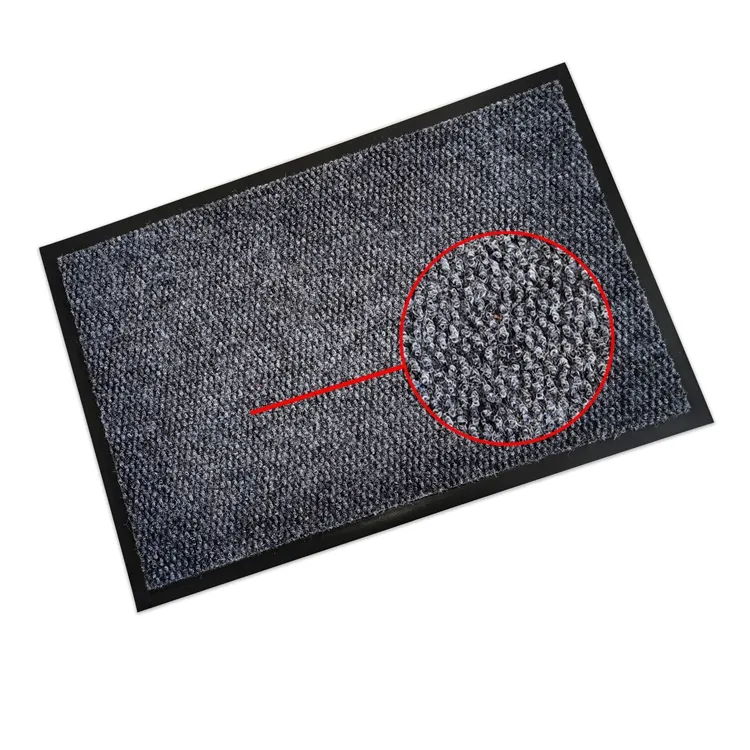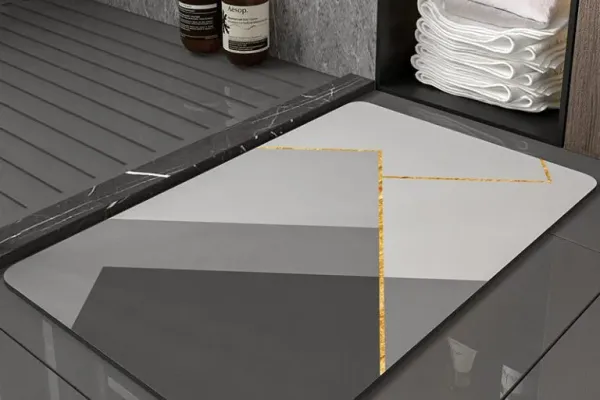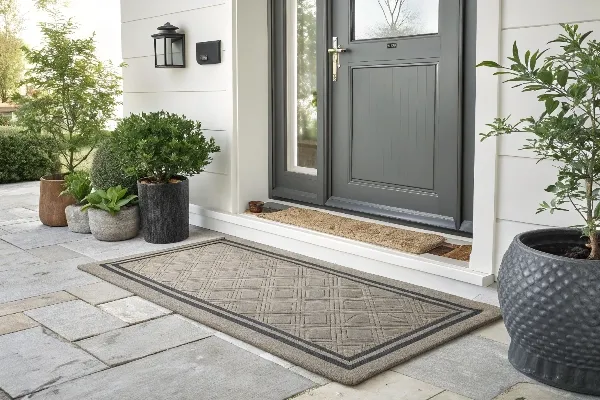Mat Quality Control and Inspection: Ensuring Excellence in Every Mat
Discover how meticulous controlo de qualidade e inspection processes ensure the production of high-quality esteiras. Learn why these practices are essential for compliance, safety, and customer satisfaction.

Índice
What Is Mat Quality Control and Why Is It Important?
Quality control is a critical aspect of esteira manufacturing. It involves a set of procedures to ensure that the final product meets specific quality requirements. This process helps in maintaining consistent quality across all mats produced.
Importance of Quality Control:
- Ensures Compliance: Meets regulatory compliance and industry standards.
- Prevents Defects: Identifies and addresses any defect in the production process.
- Satisfação do cliente: Provides high-quality mats that meet customer expectations.
By focusing on quality control, manufacturers can ensure that every esteira is safe, durable, and reliable.
Understanding the Mat Inspection Process
O inspection process is essential to verify that mats meet all specified requirements. Inspectors conduct thorough checks at various stages of production.
Key Steps in Inspection:
- Raw Material Inspection: Assessing the material quality before production begins.
- In-Process Inspection: Monitoring the manufacturing process to identify issues early.
- Final Inspection: Evaluating the final product for any defects or inconsistencies.
Regular quality inspection helps to ensure that any problems are detected and corrected promptly, maintaining the tapete high standards.
Materials Used in Mat Manufacturing
Compreendendo o materials used is crucial for both quality and environmental considerations.
Common Materials:
- Borracha natural: Eco-friendly and provides excellent grip.
- PVC: Durable but requires careful handling to avoid contamination.
- TPE: A recyclable option that balances comfort and function.
Selecting high-quality materials and components is vital to ensure quality e evitar potential issues during the manufacturing processo.
Protect your floors and enhance your practice with our Esteiras, designed for comfort and durability.
How Does Quality Assurance Ensure Product Excellence?
Quality assurance is a proactive approach to ensure that the process itself leads to a high-quality product.
Components of Quality Assurance:
- Quality Management Systems: Implementing ISO 9001 or similar standards.
- Standard Operating Procedures (SOPs): Documented procedures that guide production.
- Employee Training: Ensuring personnel are skilled and understand quality expectations.
By integrating quality assurance, companies can ensure that every esteira produced meets the desired quality levels.
Compliance and Regulatory Standards in Mat Production
Adhering to regulatory compliance is non-negotiable in mat manufacturing.
Key Regulations:
- Material Safety: Using materials that comply with health and environmental regulations.
- Product Safety Standards: Meeting international standards for quality and safety.
- Impacto Ambiental: Minimizing the environmental impact through sustainable practices.
Compliance ensures that mats are safe for consumers and that the company maintains a positive reputation.
The Role of Third-Party Inspection Agencies
Engaging third-party inspection agencies adds an extra layer of assurance.
Benefícios:
- Unbiased Assessment: Provides an unbiased evaluation of product quality.
- Especialização: Offers specialized knowledge in controlo de qualidade.
- Certification Support: Assists in obtaining necessary certifications.
Third-party inspection helps in building trust with customers by demonstrating a commitment to quality assurance.

Descubra o nosso Tapete de porta personalizado Pineapple fácil de limpar for a welcoming and stylish entrance.
Preventing Contamination in Mats
Contamination can significantly affect the quality and safety of mats.
Prevention Strategies:
- Clean Manufacturing Environment: Maintaining cleanliness to reduce contaminants.
- Proper Material Handling: Ensuring materials are stored and handled correctly.
- Regular Equipment Maintenance: Keeping machinery clean and functioning properly.
By taking these steps, manufacturers can evitar contamination and ensure the production of safe, high-quality mats.
Certification Processes for Quality Assurance
Obtaining certification demonstrates adherence to industry standards.
Common Certifications:
- ISO 9001: Focuses on quality management systems.
- SGS Certification: Verifies product compliance with regulations.
- Environmental Certifications: Showcases commitment to reducing environmental impact.
Certification helps in building customer confidence and often is required for certain markets.
Best Practices for Quality Control Documentation
Proper documentation is essential for traceability and continuous improvement.
Documentation Includes:
- Quality Control Records: Detailed inspection and test results.
- Procedures and Protocols: Written guidelines for processes.
- Corrective Actions: Records of issues and how they were resolved.
Effective documentation facilitates compliance, ensures consistency, and aids in training new personnel.
Upgrade your entryway with our Capachos em relevo 3D that combine elegance and durability.
Achieving Excellence Through Continuous Improvement
Continuous improvement is key to maintaining high product quality.
Strategies:
- Monitor: Regularly review quality metrics and process desempenho.
- Analyze: Use data to identify trends and areas for improvement.
- Corrective Actions: Implement changes to address issues and evitar recurrence.
- Employee Engagement: Encourage feedback and suggestions from staff.
By committing to excellence, companies can ensure long-term success and customer satisfaction.
Conclusão
Ensuring high-quality mats requires a comprehensive approach that includes meticulous inspection, strict controlo de qualidade, and ongoing quality assurance. From selecting the right materials to adhering to regulatory compliance, every step plays a vital role in delivering superior products.
Principais conclusões:
- Controle de qualidade is essential to ensure mats meet specific quality requirements.
- Regular inspection processes help detect and correct issues early.
- Using high-quality materials and preventing contamination enhances product safety.
- Garantia de qualidade systems like ISO 9001 support consistent production excellence.
- Engaging third-party agencies and obtaining certifications builds trust and credibility.
- Effective documentation and continuous improvement drive long-term success.
By focusing on these areas, manufacturers can produce mats that not only meet but exceed customer expectations, setting a standard for excellence in the industry.
For more information or to explore our range of quality mats, Contate-nos hoje!




